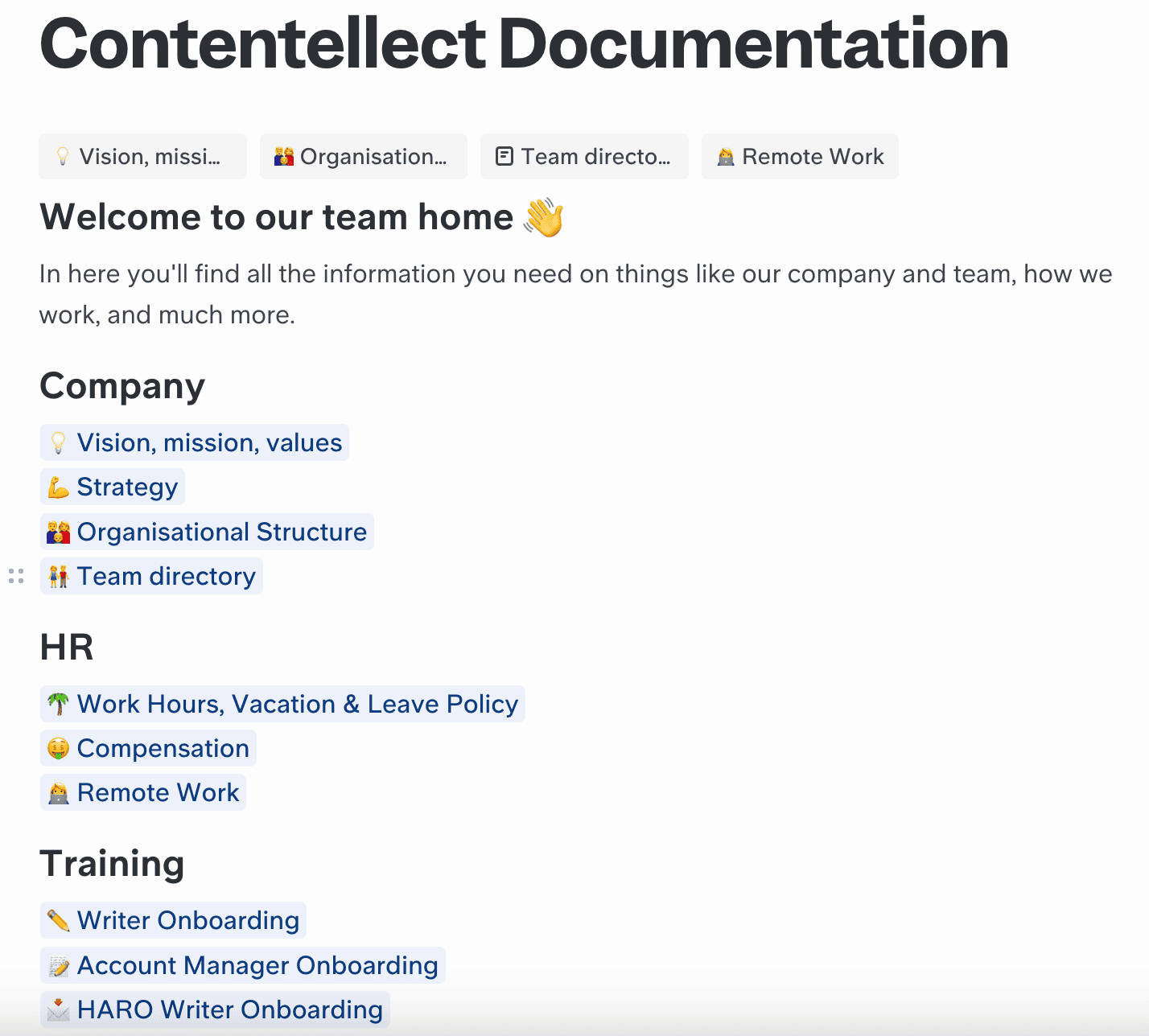Do you want to learn how to quickly build a remote work culture?
Techopedia found that 40% of US job seekers are interested in a remote position. In fact, 12% of US employees work fully remotely.
As for hybrid remote work? 26% of US employees work in hybrid roles.
With so many employees working remotely, how do you build a remote work culture?
Even better, how do you know what an amazing remote work culture feels like?
I’ve been a remote employee for years, so I’ve had first-hand experience with the best and worst remote work cultures.
I’ll share my 7 tips for building an awesome remote work company culture, mention some not-so-obvious pitfalls to avoid, and help you engage your remote employees.
Ready? Let’s roll.
7 Guaranteed Ways To Build A Remote Work Culture
Here’s my list of the 7 best ideas to quickly build an excellent remote work and company culture:
- Create an environment of trust.
- Get employees onboard with your mission and goals.
- Establish a bulletproof remote work policy.
- Use the right remote work tools.
- Do things together.
- Encourage regular feedback.
- Don’t forget about perks and benefits.
Got a bit more time with me? I’m glad! Join me as I explain how you can take these ideas from dream to reality.
Let’s start with the most important aspect of building any company culture.
1. Create An Environment Of Trust
Your remote work culture won’t flourish without an environment of trust.
Mark, CEO of Sauce Remote, wrote a bit about it in his excellent guide on hiring remote employees. He built several 6-figure companies with remote employees, so he knows what he’s talking about. Here’s what he said:

“At the heart of our remote-first culture was the cultivation of a "Manager-of-One" mindset. This concept revolved around placing trust at the core of our relationship with our remote staff.”
He continues to explain that trust made micromanagement and even remote work monitoring software unnecessary.
The result?
His employees were empowered and autonomous. They took ownership of every task and project.
But what about the flip side? What if you do micromanage your remote employees?
Acuity Training found that 68% of staff working for a “micromanager” reported a decrease in morale. It gets worse. 55% of employees claimed it hurt their productivity.
And for your company to succeed, you can’t let anything hurt your remote work productivity.
To further build a remote culture, and boost your company’s productivity, your employees must share your mission and goals.

Discover how to slash your salary costs by 80%
Get our exact process for hiring amazing overseas talent from South Africa. Includes copy-and-paste templates and a detailed salary guide.
2. Get Employees Onboard With Your Mission And Goals
Here’s the thing: if your employees don’t share your mission and goals, your company will fail. It’s cold. It’s harsh, but it’s the truth.
Your first step is to understand your company’s mission and goals. Set out your goal in simple, easy-to-understand language. Think of both short and long-term goals.
Your next step is to hire remote employees who share your mission, vision, and goals.
Once you’ve assembled a group of people with similar values, it becomes easier to build a remote work culture.
And here’s the kicker: Your mission and goals are constant reminders that everyone is working together.
This brings us to my next tip for building a remote company work culture.
3. Establish A Bulletproof Remote Work Policy
You must have a bulletproof remote work policy. Remember, remote work, flexible work, telework and even hybrid remote work, can mean a lot of different things to a lot of different people.
My tip? Sit down and write a remote work policy. Here’s what your remote work policy should address:
- Do employees have to be online at specific times?
- How do you handle different time zones?
- Can employees set their own schedules?
- Must employees occasionally travel to your main office?
- Does the company offer them a stipend to set up a home office?
- Will your company use bossware to monitor their online activity?
The more you details you cover in your remote work policy, the better.
What do you do with the remote work policy?
Share it along with your company documentation and any onboarding material. This will make it easier to keep everyone informed of how your company handles remote work.

An example of our Contentellect employee handbook.
Talking about handling things, let’s quickly discuss how the right remote work tools can make or break your company culture.
4. Use The Right Remote Work Tools
I can’t state this enough: choose the right remote work tools. They can make or break your company culture.
Based on my experience, the bare minimum remote work tools that any company should have include the following:
- Communication tools, like Slack for sending instant messages.
- Project management software, like Notion or Trello.
- Excellent meeting software, like Google Meet or Zoom.
As your company grows you can start adding more software and systems to improve collaboration, productivity and communication.
When you improve those three things, you’re so improving your company culture.
5. Do Things Together
While there are many benefits of remote work, one mayor drawback is the feeling of loneliness that randomly hits you on a Tuesday afternoon.
I know. I’ve experienced it. There’s only so much music and coffee to keep me going during the day.
And I’m not alone. A Cigna survey found that 62% of US employees feel lonely.
You might wonder how loneliness impacts productivity, but it does. Research has shown that social interactions make us happier, more productive, and healthier.
So, how do you do things together when you’ve got a remote company?
Easy. Hold virtual teambuilding sessions. Here’s a photo of one of my favourite virtual events.

One of my favourite company virtual events! Can you spot me?
If possible, try to organise a face-to-face get-together. It’s an excellent opportunity to celebrate the wins, grumble about the losses and grow closer as a community.

One of the company's face-to-face get-togethers.
And here’s my final tip for doing things together: encourage your employees to switch on their video during team meetings. This face-to-face communication also fosters closer ties and helps employees to get to know each other better.
Talking about meetings; just because you’ve got a remote workforce doesn’t mean you should neglect meetings.
6. Encourage Regular Feedback
Hold regular team meetings.
I find the best time to hold a team meeting is on a Monday morning. Everyone gets an opportunity to check in, report back, and plan the week’s coming tasks.
But, be careful of overdoing meetings.
Zippia found that 83.13% of employees spend up to one-third of their workweek in meetings. This can quickly snowball, and your productivity will suffer.
So, a fine balance is better. Also, schedule regular performance reviews, once every six months or so.
Performance review meetings are an excellent time to give and receive feedback. Ask your employees what works and what doesn’t.
This will help you improve your remote company culture.
Ready for the final tip to quickly build an epic company culture?
Hire remote talent from South Africa & slash salary costs by 80%
Salaries start from £8,000 per year!
7. Don’t Forget About Perks And Benefits
Employees love perks and benefits. Just because your employees are remote doesn’t mean they don’t want them.
Forbes found that 40% of companies believe employees will quit to find employment with better perks and benefits.
It’s not just employees that benefit; pun intended!
Care.com found that benefit programs increase productivity by 53% and improve staff retention by 49%.
So, ask yourself, what other benefits can you offer to attract and retain top staff while improving your company culture?
Some popular perks and benefits include:
- Home-office stipends,
- Subscription services, such as Spotify,
- And company swag!
3 Reasons To Build Your Remote Work Company Culture Today
But wait. Why all of this hassle over creating an amazing remote work culture? I knew you’d ask.
Here are 3 reasons to start building your remote work company culture today.
1. It Sets You Up For Success
The future of remote work is bright. It’s here to stay and will only become more popular.
Companies with a strong remote work culture will have a fantastic foundation on which to grow.
2. It Attracts And Retains The Best Employees
Want the best talent? Consider offering flexible, remote work.
Payfit research found that “Three-quarters (77%) of employees say flexible working is more important to them when considering a new role than a pay rise.”
Want to retain that top talent? Invest in your company culture.
3. It Improves Morale, Health And Productivity
And finally, it’s been proven that remote work improves productivity, leads to healthier lifestyles, and saves companies more money.
My Final Thoughts
And there you have it: 7 excellent ideas to quickly build a remote work culture. I’ve even shared 3 top reasons why your company should do it. And hey; if you’re looking for excellent remote employees, just ask Sauce.
